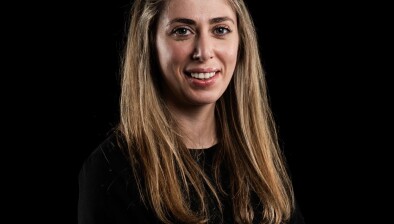Scotland: Doctor given interim suspension after being charged with terrorism offences loses challenge to further extension

An Edinburgh doctor who was given an interim suspension by the General Medical Council after being detained regarding allegations of terrorist activity in Northern Ireland has had his suspension extended following a successful petition by the GMC to the Outer House of the Court of Session.
The respondent, who was mostly confined to his home by his bail conditions, argued that a further extension was not in the public interest, and that the petitioner had erroneously equated the allegations against him with allegations of a sexual nature. It was considered that a further suspension period would not be disproportionate at the present time.
The petition was heard by Lord Ericht, with the petitioner represented by Lindsay KC and the respondent appearing as a party litigant.
Balance of interests
On 26 October 2020 the Interim Orders Tribunal (IOT) made an interim order of suspension of the respondent’s registration for a period of 18 months arising from the respondent’s arrest and subsequent detention on remand in relation to allegations that he was involved in preparatory terrorist activities. He was charged with the preparation of terrorist acts contrary to the Terrorism Act 2006 and of addressing a meeting for the purpose of encouraging terrorism contrary to the Terrorism Act 2000.
The interim order was reviewed and maintained as an interim order of suspension on 14 April 2021 and on 4 October 2021. In December 2021 the respondent was released on bail and returned to his home, following which the IOT determined in March 2022 that it was necessary to maintain the interim order of suspension until 25 April 2023.
In considering a reclaiming motion by the respondent challenging the previous extension, the Inner House held that allowing the petitioner to work before the conclusion of criminal proceedings would present a risk to the integrity and reputation of the medical profession. Before the Lord Ordinary it was submitted that the maintenance of the existing order was in the public interest and that the present bail conditions attached to the respondent rendered him unemployable.
The respondent submitted that the GMC had failed to consider the particular facts about his case. He had been dragged to a meeting by a state agent in an entrapment operation orchestrated and engineered by the UK security services. The petitioner failed to balance the interests of the respondent which are more far reaching than just of their financial and reputational aspect, but also familial, political, and national interest among others versus the interest of the public.
Surprised and offended
In his decision, Lord Ericht observed: “The Inner House has already decided that a reasonable and properly informed member of the public would be surprised and offended to learn that this particular respondent had been permitted to practise whilst under investigation and the subject of these criminal proceedings. The question for me is the proportionality of the extension sought, having regard to the general public interest in maintaining confidence in the medical profession, the existence of the criminal charges, the interests of the practitioner and the reasons the case has not concluded.”
Considering the arguments raised by the respondent, he said: “He argues that the charges he faces are not as serious as sexual offences: a terrorist is not going into hospital to rape patients. He further submitted that there is a range of seriousness within terrorism offences, so that speaking to a meeting (as he did) is not as serious as other terrorist activities. I do not agree.”
He went on to say: “The length of the suspension has not yet reached the stage where it makes it disproportionate for the suspension to continue. In finding that the previous extension was proportionate, the Inner House expected that it was unlikely that the trial would take place until at least some time in 2024. The extension currently sought is only to April 2024. During the period of the extension now sought, substantial progress is expected to be made in the criminal proceedings and it is expected that the respondent will either be discharged or committed for trial.”
Lord Ericht concluded: “I find that a reasonable and properly informed member of the public would be surprised and offended to learn that the respondent had been permitted to practise whilst under investigation and the subject of these criminal proceedings, and that an extension to the order is proportionate to the nature of the offences and the risk to public confidence in the profession. I am satisfied that it is in the public interest for the suspension order to be extended as sought.”
The prayer of the petition was therefore granted, with the respondent’s interim suspension extended until 25 April 2024.











